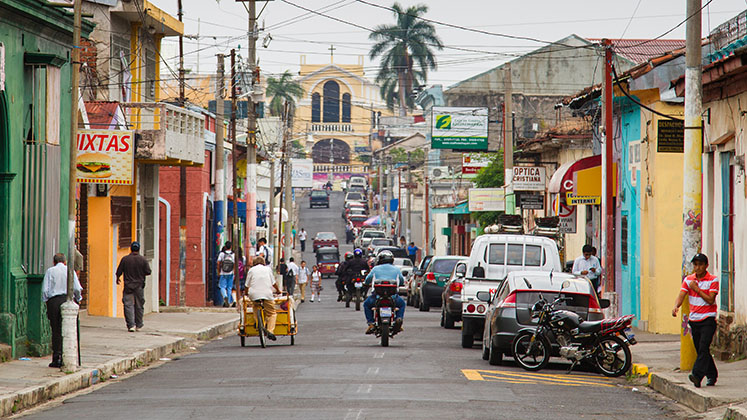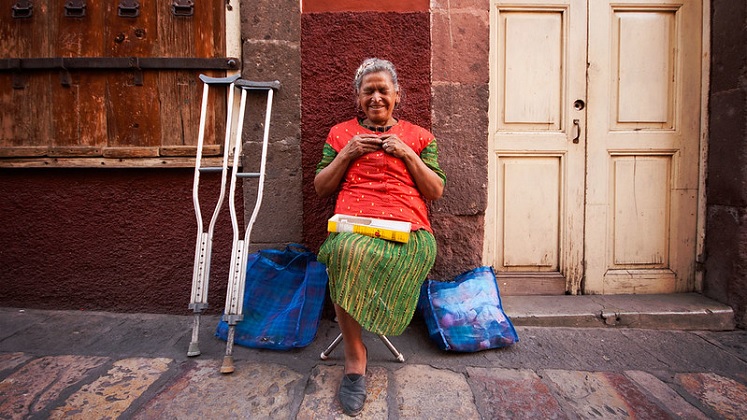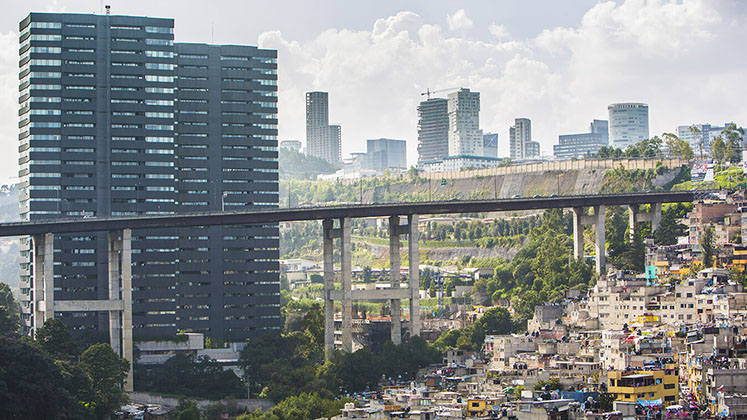 The Salvadoran state’s reliance on ‘firm hand’ policies in its adversarial relationship with street gangs is central to understandings of violence and insecurity in the country. But behind the rhetoric there lies a very different reality. Examination of practices at the local level reveals a more nuanced picture in which political authority is achieved through a complex bargaining process involving the state, society, and armed groups, writes Viviana García Pinzón (German Institute of Global and Area Studies & Phillips Universität Marburg).
The Salvadoran state’s reliance on ‘firm hand’ policies in its adversarial relationship with street gangs is central to understandings of violence and insecurity in the country. But behind the rhetoric there lies a very different reality. Examination of practices at the local level reveals a more nuanced picture in which political authority is achieved through a complex bargaining process involving the state, society, and armed groups, writes Viviana García Pinzón (German Institute of Global and Area Studies & Phillips Universität Marburg).
In April 2020, El Salvador was for once in the international headlines, with widely publicised photos showing hundreds of tattooed, shaven-headed, barely clothed men crammed together in overcrowded prisons (see below). The images had been released to coincide with the official announcement of more drastic measures against imprisoned gang members following an increase in homicides. The government’s intended message was clear: the state will get tough with its enemies.
Inmates from Salvadoran prisons were paraded before the cameras in late April 2020
Personally, these images took me back to October 2017, when the government deployed tanks and heavily armed soldiers in downtown San Salvador. I couldn’t help but wonder how this could possibly help the many thousands affected by violence and insecurity on the city’s outskirts. But a couple of days later an official of the Ministry of Justice and Public Safety clarified that the tanks would mainly serve to demonstrate the force of the state and reassure citizens that the situation was under control.
This facade of a strong state tackling its sworn enemy, the maras (street gangs), contrasts with the accounts of street-level bureaucracies in San Salvador and Sonsonate that I would later encounter in my research. Contrary to the simple binaries depicted in political speeches and the warlike posturing of the army, examining everyday processes at the grassroots level reveals that the state is just one of a number of authorities shaping official practices in contexts of violence.
Negotiating local governance
Take, for example, the safety measures adopted by municipal officials from the Ministry of Public Works, Transport, and Housing.
It is not for nothing that in certain areas these officials are never deployed on the 13th or 18th of the month: these numbers are linked to the country’s two largest gangs, with 13 representing the M in Mara Salvatrucha and 18 relating to their rivals Barrio 18. Sometimes, one official told me, new gang members are expected to commit an act of violence as a rite of passage, and these two symbolic dates are often chosen. Public servants from the ministry can easily become targets for this kind of violent action because they will be seen as outsiders to the neighbourhoods in question.
Similarly, officials in the field are given bright yellow clothing so that they can easily be recognised as employees of the ministry. The basic and crucial aim is to prevent them from being mistaken for members of the security forces.

Another example comes from a provincial planning official tasked with making on-site assessments for building permits.
In parts of the city under gang control, permit applicants frequently need to seek authorisation from gangs for officials to be allowed on to their property in order to carry out an evaluation. For their own safety, officials tend to request that the applicant pick them up, drive them directly to the property, and drop them off at the office again afterwards.
Far from being exceptional, planning officials suggest that this is the norm. Performing many aspects of their work requires the intervention of the community, as one planner told me:
One can always expect the communities or the members of the community development association to step in and deal with the boys. In the end, they also have families, and, well, they themselves need sewerage, clean water, electricity, and roads. You know, these basic services that anyone needs to live.
This illustrates how everyday citizens and local communities often act as brokers between gangs and the state. This intermediary role not only facilitates the delivery of public services, it also provides the basic means for the state to govern. The presence of multiple violent actors shapes state practices in terms of their geography, timing, and regularity.
Likewise, state officials are aware of the power wielded by the gangs, and as such they put aside the idea of combating the enemy in favour of a pragmatic approach emphasising the need to find workable means of achieving a basic level of governance.
Who gets to be a citizen in El Salvador?
Another divergence between national and local levels of governance in El Salvador relates to citizenship. National security policy in El Salvador has been largely based on the dehumanisation of gang members, who are often depicted as the epitome of violence and the embodiment of the “non-citizen“. In contrast, my own research found more ambivalent positions within local bureaucracies.
On the one hand, officials are well aware of their duty to perform their functions in line with the law, irrespective of the presence or prevalence of gangs. On the other hand, when explicitly considering gang members, they often have more nuanced views.
Though they identify gangs as a source of violence, there is also a recognition of the embeddedness of the gang phenomenon in historical patterns of inequality and exclusion. For instance, a member of the social committee of one provincial municipality emphasised the importance of including all the members of the communities in local government programmes without drawing distinctions between normal people and gang members or their relatives. For her, inclusion and participation are crucial to preventing further violence.

States imaginary and practical
The importance of these local-level accounts is that they provide real insight into how the state works in practice. Although the Salvadoran government might try to portray itself as a powerful and coherent force battling against a sworn enemy, the practices of officials and agencies at the local level show that real political authority is inevitably negotiated.
Unpacking the local practices of the state in El Salvador and beyond can help us to get past an over-reliance on analysis of national politics and the forces of order in security research. This in turn will contribute to a deeper understanding of the nature of political authority in contexts of chronic violence.
Notes:
• The views expressed here are of the authors rather than the Centre or the LSE
• Please read our Comments Policy before commenting





